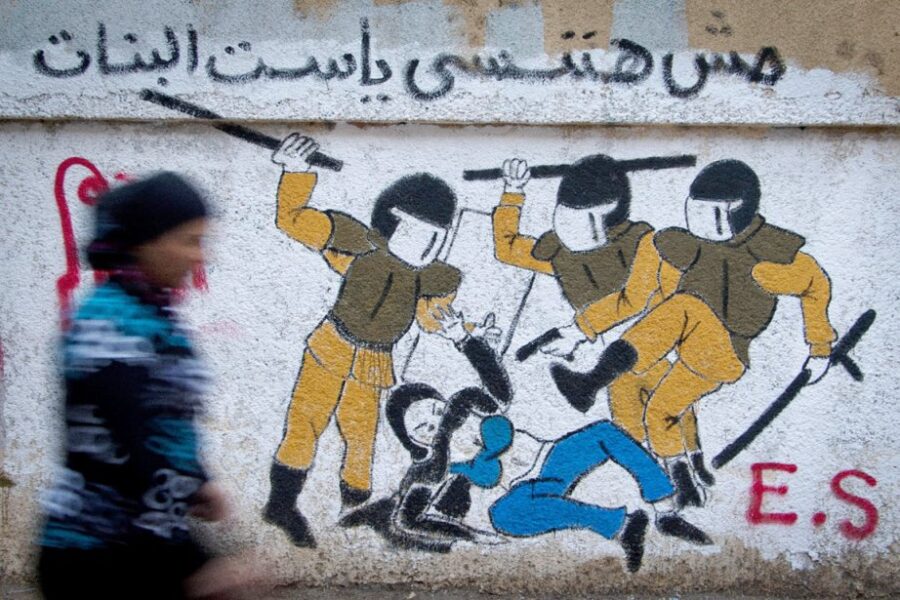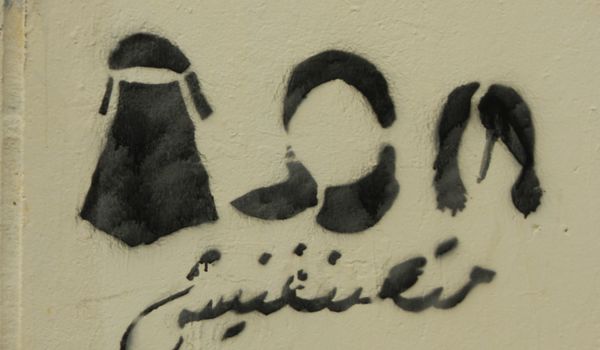Articles
Why Do We Need “Islamic Feminism”?
Article author: Ziba Mir-Hosseini
Date of publication of the article: 30/06/2021
Year of publication: 2021
Article theme: Islam, Jurisprudence, Mujer, Women.
The Observatory of Islamophobia in the Media recovers this article published by the anthropologist Ziba Mir-Hosseini for Al Raida Journal on the need for an “Islamic feminism”. Ziba Mir-Hosseini collaborated with FUNCI in the development of the project Islam and Constitutionalism: an open dialogue.
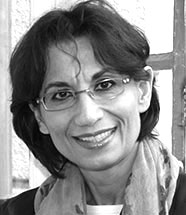 At least until recently, justice was the business of Muslim scholars (ulema). They defined what it requires and permits, its scope and its manifestation in laws, and examined its roots in Islam’s sacred texts. As for gender rights, their conception of justice was determined by a strong patriarchal ethos. Take these two statements:
At least until recently, justice was the business of Muslim scholars (ulema). They defined what it requires and permits, its scope and its manifestation in laws, and examined its roots in Islam’s sacred texts. As for gender rights, their conception of justice was determined by a strong patriarchal ethos. Take these two statements:
- The fundamentals of the Shari‘a are rooted in wisdom and promotion of the welfare of human beings in this life and the Shari‘a embraces Justice, Kindness, the Common Good and Wisdom. Any rule that departs from justice to injustice, from kindness to harshness, from the common good to harm, or from rationality to absurdity cannot be part of Shari‘a.[1]
- The wife is her husband’s prisoner, a prisoner being akin to a slave. The Prophet directed men to support their wives by feeding them with their own food and clothing them with their own clothes; he said the same about maintaining a slave.[2]
Both statements were made by the same scholar, Ibn Qayyim al-Jawziyya (1292–1350 CE) – a reformist in his time and now a source of inspiration for some contemporary Islamist groups. The first statement, in my view, in a succinct way captures what Shari‘a is about: justice, kindness, common good, and wisdom. The second statement reflects the consensus of classical jurists as to what justice requires and permits in marriage.
Similar conceptions of justice and gender rights are to be found, of course, in other religious traditions. Gender equality is a modern ideal, which has only recently, with the expansion of human rights and feminist discourses, become inherent to generally accepted conceptions of justice. But what presents Muslims with a distinct problem is that the source of family law and gender norms is still classical fiqh rulings, expressed either in partially reformed and codified laws or in cultural norms and practices. These rulings uphold a patriarchal model of family, treat women as second-class citizens, and place them under male authority.
The debate on the religious legitimation of patriarchy
The religious legitimation of patriarchy has been the subject of heated debate since the early twentieth century. The debate continues to be tainted with the legacy and politics of colonialism and orientalist narratives of Islam. Broadly speaking, feminist participants in this debate form two broad camps. The first are those who consider religion to be inherently patriarchal and see engagement with it to be a futile and incorrect strategy. The second group comprises those who see such an engagement as essential for a viable and meaningful challenge to the hegemony of patriarchal interpretations of the Shari‘a.
This second group (among which I include myself) by the 1990s had acquired the label of ‘Islamic feminists’. They argue for the necessity of a brand of feminism that takes Islam as a source of legitimacy and confronts patriarchy from within the tradition. In what follows I sketch why such a feminism emerged and what it has to offer.
The struggle for gender equality is part of the larger struggle for social justice and democracy, which in Muslim contexts is enmeshed in an intricate dialectic between religion and politics. For a feminist project to bring sustainable change, it must recognize this fact, and develop arguments and strategies that can effectively rupture the tenacious links between patriarchy and despotic politics, which sustains unjust laws and structures. This is not possible without questioning the hegemony of those who claim to speak in the name of Islam when defending patriarchal interpretations of the Shari‘a.
For a feminist project to bring sustainable change, it must recognize this fact, and develop arguments and strategies that can effectively rupture the tenacious links between patriarchy and despotic politics, which sustains unjust laws and structures.
Let me elaborate:
One of the central challenges that Muslim women face in their struggle for equality is how to address in a meaningful and systematic way the gap between modern notions of justice, in which equality is inherent, and those that underpin laws regulating established understandings of the Shari‘a, in which individuals are accorded rights on basis of their faith, status, and gender, as found in classical fiqh rulings. To address this gap, we need scholars and activists who can work together to bring fresh perspectives on Islamic teachings, and to explore common ground with advocates of human rights and feminism. They must tackle two blind spots in approaches to gender issues in Islam and human rights. On the one hand, scholars of Islam are largely unaware of the importance of gender as a category of thought analysis; they oppose both feminism, which they understand to mean women’s dominance of men, and human rights, which they see as alien to Islamic tradition. On the other, some feminists and human rights advocates have little knowledge or appreciation of religious categories of thought and religion-based laws, rejecting them as antithetical to their project. However, the vast majority of women whose rights they champion are believers and live according to the teachings of Islam, thus effective change can come only through a meaningful and constructive engagement with those teachings. In my view, to abolish patriarchal laws and customs among Muslims it is not enough, and it is sometimes counterproductive, simply to dismiss them as anachronistic or to attack them on human rights grounds only.

In other words, to achieve sustainable and deep-rooted change, we need dialogue and consensus. We should demonstrate the injustices that arise from patriarchal customs and laws based on the pre-modern interpretations of the Shari‘a and offer defensible and coherent alternatives within a framework that recognizes equality and justice in Islam.
Islam and feminism
Far from mutually opposed, I argue, approaches from Islamic studies, feminist and human rights perspectives can be mutually reinforcing. This is particularly the case in mounting an effective campaign against gender discrimination in Muslim contexts where the linkage between the religious and political dimensions of identity is strong. This linkage is not new – its historical roots are deep and is also a legacy of the colonial era – but took a new and distinct expression in the 1970s with the resurgence of Islam as a political and spiritual force. With the end of the colonial era, the rise of secular and despotic regimes in Muslim countries and their suppression of progressive forces left a vacuum that was filled by Islamist movements. These movements, strengthened dramatically by the success of the Iranian Revolution of 1979, accelerated with the subsequent perceived defeat of communism, and received further impetus with the rise of the neo-conservatives in the US. The American response to the events of 9/11 – in particular the invasions of Afghanistan in 2001 and Iraq in 2003 – put Muslim women in the crossfire. Both invasions were partially justified in the name of ‘freeing Muslim women’ – yet with orientalist understandings of the latter that were reinforced by much publicized writing by those such as Ayaan Hirsi Ali and Irshad Manji.
In other words, to achieve sustainable and deep-rooted change, we need dialogue and consensus. We should demonstrate the injustices that arise from patriarchal customs and laws based on the pre-modern interpretations of the Shari‘a and offer defensible and coherent alternatives within a framework that recognizes equality and justice in Islam.
The way out of this predicament is to bring Islamic, feminist and human rights frameworks together. This is the only option that we have in the present context, where we are faced by an apparent choice between the devil of Islamists who want to impose patriarchal interpretations of Islam’s sacred texts, and the deep blue sea of western neo-colonialists who pursue a hegemonic global project in the name of enlightenment and feminism.
But is this possible? Can we ground our claim to equality and arguments for reform simultaneously in Islamic and human rights frameworks? Can there be an egalitarian interpretation of Shari‘a? If so, how are we to understand those passages in the texts that appear not to treat men and women as equals?
It is here that the new wave of reformist thought and feminist scholarship in Islam has something to offer. Following and building on the work of earlier reformers, these thinkers contend that the human understanding of Islam is flexible, that Islam allows change in the face of time, place and experience, and that Islam’s tenets can be interpreted to encourage both pluralism and democracy. But instead of searching (like earlier reformers) for an Islamic genealogy for modern concepts like gender equality, human rights, and democracy, they place the emphasis on how religion is understood and how religious knowledge is produced. They do not reject an idea simply because it is Western, nor do they see Islam’s textual sources as providing a blueprint, a built-in program of action for the social, economic, and political problems of the Muslim world. What they give us is ethical guidance and principles for the creation of just laws. The Qur’an upholds justice and exhorts Muslims to stand for justice; but it does not give us a definition of justice. Rather, it gives indications of the path to follow towards justice, which is always time- bound and context-specific. To understand the Qur’an’s direction, they contend, we need a critical reassessment of the entire Islamic intellectual tradition: theology, ethics, philosophy, and jurisprudence.
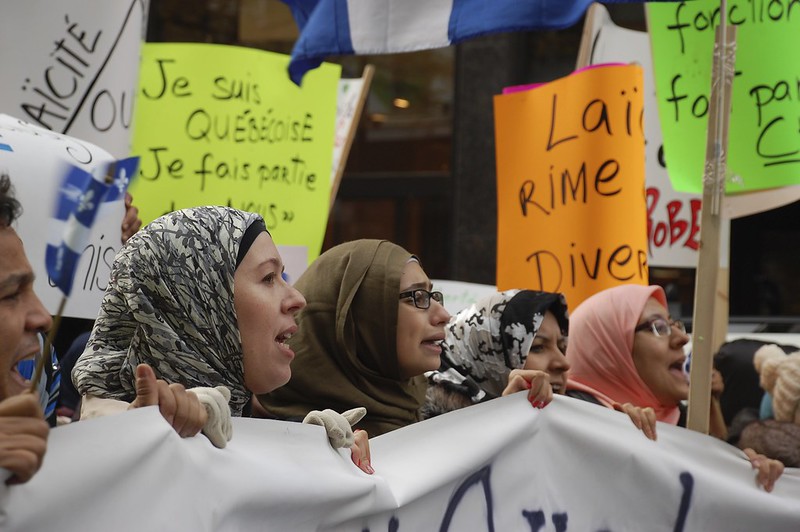
Using the conceptual tools and theories of other branches of knowledge, these thinkers have built on the work of previous reformers and developed further interpretive-epistemological theories and reform strategies. Chief among them are the distinctions between religion (din) and religious knowledge (al-ma‘rifah al-diniyah), and between the changeable and the unchangeable (mutable and immutable, accidentals and essentials, descriptive and prescriptive) in the texts; they seek to discern the Lawgiver’s aims (maqasid) and the changes these aims would have led to in the course of time, and to locate both the sacred texts and the rulings that the classical fuqaha derived from them in their historical and political contexts.[3]
Islamic feminism as a reformist thought
Islamic feminists are part of this new trend of reformist thought. They are re-inserting women’s concerns and voices – which were silenced by the time that the fiqh schools emerged – into the processes of production of religious knowledge and law making. In this sense, they must be seen as part of the larger struggle for the democratization of production of knowledge in Islam and for the authority to interpret its sacred texts.
There are of course those who are unsettled by the engagement with religion and with search for gender justice within Islam. They argue that such feminists face ‘equally authentic’ interpretations of the sacred sources, and, unable to ‘oppose the divine will’, will be defeated by the impossibility of judging whose interpretations are correct. This is a defeatist kind of objection. Authority is not the same as authenticity. The feminist voices and scholarship in Islam seek just such engagements with proponents of supposedly authentic but patriarchal legal traditions, convinced that their own arguments are better grounded in both those traditions and the sources of International Human Rights law, and above all, that any Islamic authority that denies justice as it is understood today cannot be authentic and should be challenged.
Islamic feminists are part of this new trend of reformist thought. They are re-inserting women’s concerns and voices – which were silenced by the time that the fiqh schools emerged – into the processes of production of religious knowledge and law making.
For in many ways, it is the notion of ‘Shari‘a’ that is the problem. In modern times, when nation-states have created uniform legal systems and selectively reformed and codified elements of classical Islamic law, and when new forms of political Islam have emerged that use Islamic law as an ideology, one of the main distinctions in the Islamic tradition has been distorted and elided. This is the distinction between Shari‘a and fiqh. In Muslim belief, Shari‘a is God’s will as revealed to the Prophet Muhammad. Fiqh, or jurisprudence, denotes the process of human endeavour to discern and extract legal rulings from the sacred sources of Islam, that is, the Qur’an and the Sunnah (the practice of the Prophet, as contained in Hadith, Traditions). This distinction, which underlies the emergence of the various jurisprudential schools in the tradition, and, within them, a multiplicity of positions and opinions, has immense epistemological and political ramifications. It allows contestation and change; it enables us to separate the legal from the sacred, and to ask basic questions such as, how do we know what the Shari‘a is? How do we know what we know about gender rights in Islam? Who decides what ‘Islam’ says or mandates? The distinction is therefore crucial to the arguments of committed feminists who choose to locate their feminism within Islamic tradition.
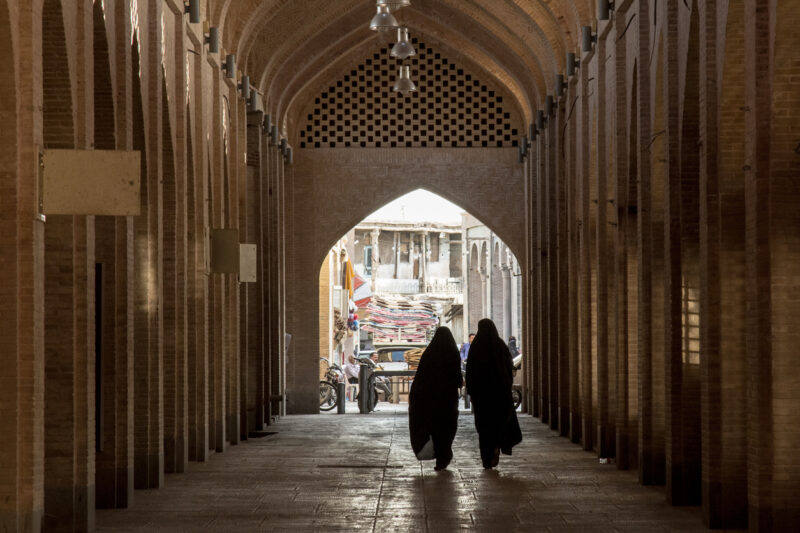
Let me end by saying that the close link between theology and politics can be a double- edged sword – it can cut both ways. It has been one of the main obstacles that Muslim women face; but it has also the potential to be a significant and effective means for challenging patriarchal laws and unjust structures. Since the nineteenth century, Muslim women’s quest for equality has been hostage to various political forces and tendencies. Paradoxically, the rise of political Islam in the second part of the twentieth century, and the politics of the ‘War on Terror’ in the present century, have shed new light on how ideological dichotomies such as ‘secular’ versus ‘religious’ feminism, or ‘Islam’ versus ‘human rights’ have masked the real site of the battle – the conflict between, on the one side, patriarchal and authoritarian structures, and, on the other, egalitarian and democratic ideologies and forces. If we recognize this, then we can aspire to real and meaningful change, and begin to transform the deep structures that have shaped our religious, cultural and political realities.
Dr. Ziba Mir-Hosseini is a professorial research associate at SOAS University of London. She is also a free-lance academic focusing on debates on gender equality in law.
This article was first published in Al Raida Journal, vol. 44, issue 2, 2020, pp. 85-91.
[1] Ibn Qayyim al-Jawziyya, I’laam ul Muwaqqi’een ‘an Rabb il ‘Aalameen, (Beirut: Dar al-Fekr el-Arabi, 1955), vol. 3, p. 1.
[2] Quoted in Yossef Rapoport, Marriage, Money and Divorce in Medieval Islamic Society (Cambridge: Cambridge University Press, 2005), p. 52.
[3] For the relevance of new Muslim reform thinkers to gender equality see Mir-Hosseini, ‘Muslim Women’s Quest for Equality: Between Islamic Law and Feminism’, Critical Inquiry 32 (summer 2006), pp. 629-45; and Ziba Mir-Hosseini, Mulki Al-Sharmani and Jana Rumminger (eds) Men in charge? Rethinking Male Authority in Muslim Legal Tradition, London: Oneworld, 2015.


